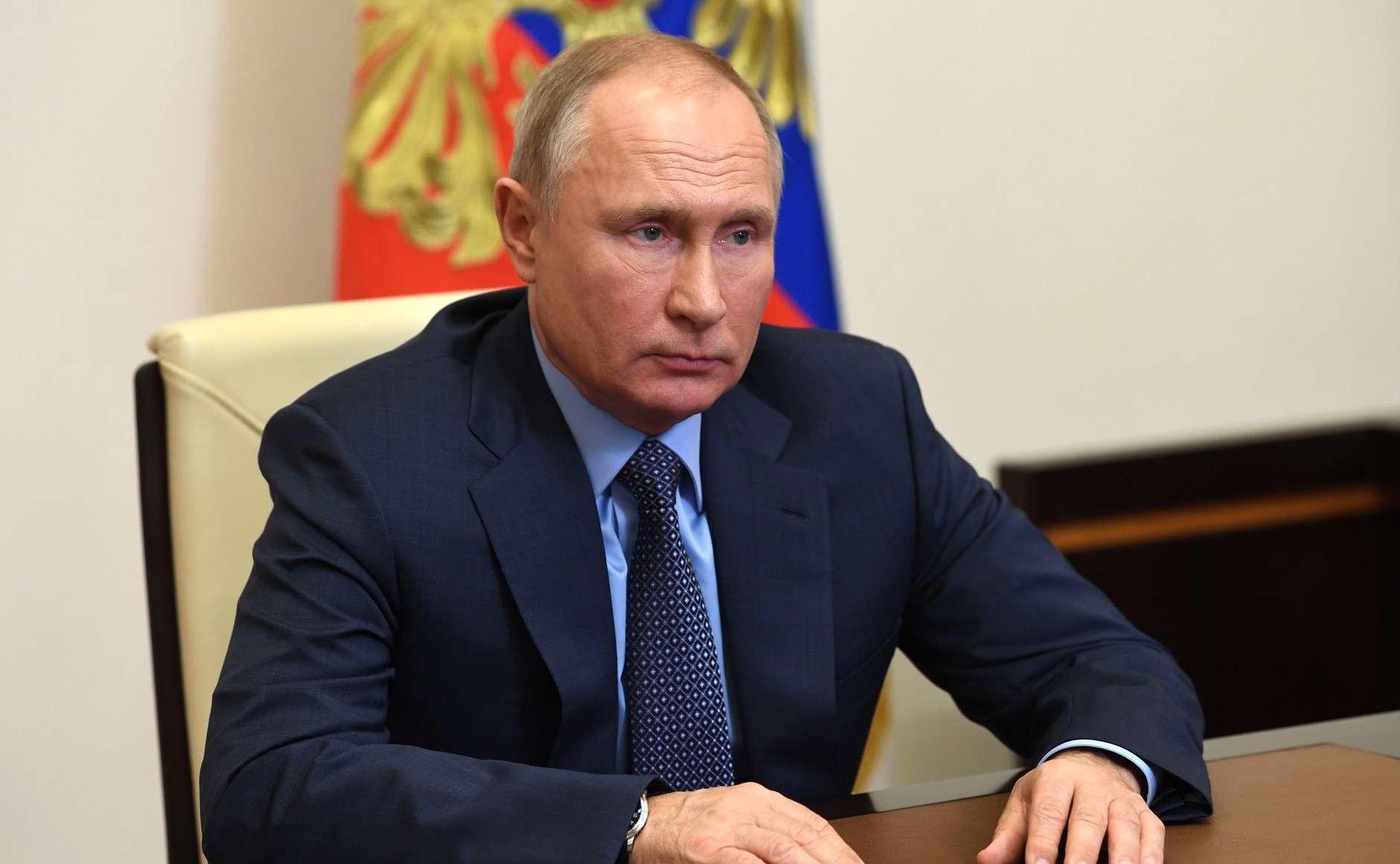Crisis reaches boiling point
Ukraine: Workers’ unity against capitalist warmongers and imperialist meddlers
Committee for a Workers’ International (CWI) reporters
Russia’s President Vladimir Putin has recognised the ‘independence’ of two Moscow-backed separatist regions in eastern Ukraine. He declared that ‘peacekeeping’ forces will be sent to the territories.
Prospects of a revival of talks arising from the Minsk agreements of 2014 and 2015 between France, Germany, Russia and Ukraine – with proposals for “special status” elections and a constitution for the Donbas areas – are now dead in the water.
Putin made the announcement during a televised meeting of Russia’s Security Council on 21 February. He claimed the decision was in response to pleas from the leaders of the ‘People’s Republics of Donetsk and Luhansk’ for the Russian government to recognise them as independent states and to protect them from “genocide” by Ukrainian forces. Moscow claims an evacuation to Russia has begun of 700,000 of the three million still living in these areas.
Over 14,000 people have died in the conflict in eastern Ukraine since 2014. This followed the coming to power in Kiev of a pro-Western reactionary regime involving Ukrainian ultra-nationalists and far-right militias.
In his speech, Putin railed against Nato aggression but also went on to attack the revolutionary socialist legacy of the Bolshevik leader Lenin. “So you want de-communisation? That suits us. But let’s not stop half-way. We are prepared to show you what real de-communisation looks like”, Putin said.
In other words, the ‘Greater Russian’ nationalist Putin thinks that Ukraine, and other republics created in the early years of the Soviet Union, should not exist.
There is an ocean of difference between the right-wing, pro-capitalist nationalism of Putin, and the international working-class solidarity of Lenin. The 1917 revolution was able to succeed because of the socialist programme of Lenin, Trotsky and the Bolsheviks, which included supporting the right of nations oppressed under Tsarism to self-determination, while advocating that the republics formed a voluntary and equal union of socialist states.
The Western powers said Putin’s claims of Ukrainian attacks on the Luhansk and Donbas Russian ‘enclaves’ was a pretext for an invasion. Yet the west has a long history of ‘false flag’ operations. The 1964 Gulf of Tonkin incident was a fabrication which the Democratic US president Johnson used to justify a massive stepping up of US military involvement in Vietnam. Infamously, the US and British governments’ false ‘Weapons of Mass Destruction’ claims were used in the run-up to the 2003 invasion of Iraq.
The Nato powers furiously denounced Putin’s latest move as a flagrant invasion of a sovereign country, and announced a serious of new sanctions, including against public figures in the breakaway Russian enclaves.
Here again, the West is guilty of nauseating hypocrisy. The same western powers do little about Nato member Turkey’s continuing ‘illegal’ occupation of Northern Cyprus after the 1974 invasion, which led to ethnic cleansing and division of the island, or its invasion and occupation of northern Syria in 2019.
As we go to press, Germany has reportedly pulled the plug on the Nord Stream 2 gas pipeline with Russia. In reply, Russia can squeeze gas and oil supplies to Europe. Such tit-for-tat actions can have big consequences for the world economy and the cost of living squeeze currently affecting hundreds of millions in the west alone.
Nato’s eastwards creep
Russian troops have been gathered near Ukraine’s Eastern border for months now. As we explained last April, when at least 100,000 soldiers were said to be in the area: “An overarching reason for the military tensions lies in the steady expansion of Nato up to the borders of Russia since the dissolution of the former Soviet Union.”
Nato forces have been aggressively strengthened throughout the states that border Russia and Belarus, as well as Ukraine. Nato powers have been delivering military hardware, in abundance, to Ukraine, and are training permanent and volunteer forces in military combat skills.
Putin will hope that by appearing powerful on the international arena he can boost his falling popularity at home. His overriding concern is to protect the billionaire elite in Russia and to retain his closest circle’s position at the head of it.
He doesn’t want an independent country with a large Russian-speaking population opposed to him on his doorstep. And he wants to be sure Ukraine does not follow other former members of the USSR, such as Lithuania, Latvia and Estonia into the Nato Alliance.
This week has seen an escalation of the conflict. It has been suggested that, once started, Russian forces could push to establish a land corridor between Russian-claimed Crimea and the so-called ‘Republic’ of Donbas. This could be costly in terms of loss of life on both sides.
Socialists oppose any slide into war which means the suffering of millions of working people, already the main victims of the conflict. Socialists stand against repression of any national minority.
These events show the desperate need to build forces in both Ukraine and Russia that can unite workers and the poor against capitalists and warmongers and meddling western imperialism, with policies for workers’ democracy and socialism.









